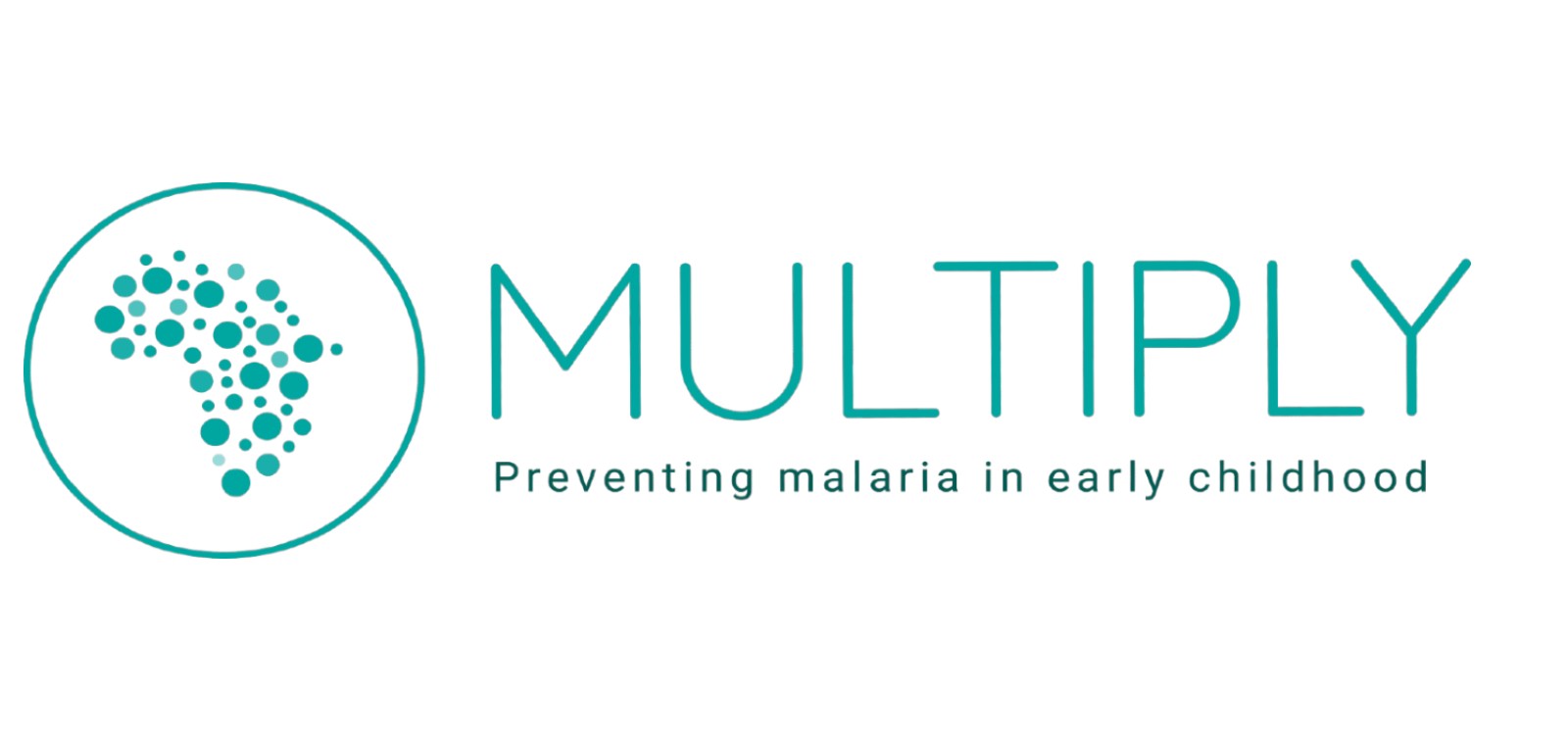MULTIPLY
MULTIple doses of IPTi Proposal: a Lifesaving high Yield intervention

- Duración
- 01/05/2021 - 31/08/2024
- Coordinador
- Clara Menéndez
- Financiadores
- The European & Developing Countries Clinical Trials Partnership (EDCTP)
- Página web
- https://multiplyipti.net
As efforts to control malaria are stalling, and the disease is particularly severe in children under the age of two, it is imperative for countries in sub-Saharan Africa, with areas of moderate-to-high transmission, to implement Intermittent Preventive Treatment in infants (IPTi) delivered through the Expanded Program on Immunization (EPI), which is the only feasible, sustainable and cost-effective strategy to reach this high-risk group. IPTi has been shown to be safe, efficacious in reducing clinical malaria, anaemia and hospital admissions, and to be highly cost-effective since it is delivered alongside EPI and uses an inexpensive antimalarial drug (Sulfadoxine-Pyrimethamine); for all these reasons, the World Health Organisation recommends it for malaria prevention in infants. However, IPTi has not been implemented to date, except in Sierra Leone.
MULTIPLY is a large-scale implementation development cooperation project, which includes public and private European and African institutions aiming at maximising the delivery and uptake of IPTi, to achieve full potential and effectiveness of this intervention.
Research partners from Mozambique, Sierra Leone and Togo in selected country districts will conduct the implementation of IPTi at health facilities and EPI mobile-outreach clinics using a paediatric dispersible formulation of SP, alongside routine vaccinations and vitamin A supplementation. Children will receive up to a maximum of 6 doses of IPTi in the first two years of life.
Through this implementation, capacity will be built and fundamental programmatic issues to achieving effectiveness will be assessed, including:
- IPTi operational feasibility and acceptability;
- impact on health services integration, i.e. on EPI immunisations and vitamin A administration coverage;
- the cost and cost-effectiveness of IPTi delivery including through the outreach EPI platform;
- the impact on malaria incidence, anaemia, overall mortality, SP resistance development and the safety of the intervention.
The integration of IPTi with EPI contacts, together with social and behaviour change communication campaigns to inform communities of the importance of EPI, and the malaria protection afforded by IPTi delivered at the EPI, could lead to an increased demand for EPI.
Total Funding
4,722,431 €
This project is part of the EDCTP2 programme supported by the European Union
Nuestro equipo
Coordinator
-
Clara Menéndez Santos
ISGlobal Team
-
Maya Sibley Project manager
-
Pilar Fontserè Financial Manager
-
 Cristina Raya Gambus Project Assistant
Cristina Raya Gambus Project Assistant -
Raquel González Alvarez
-
 Alfredo Mayor Research Professor
Alfredo Mayor Research Professor -
 Llorenç Quintó Bioestadístico
Llorenç Quintó Bioestadístico
Otros proyectos
Ver proyectos pasadosNHEPACHA
Nuevas Herramientas para el Diagnóstico y la Evaluación del Paciente con Enfermedad de Chagas
Estudio inmunológico de la vacuna RTS,S
Estudio de correlatos de protección frente a la malaria después de la vacunación con RTS,S/AS01E: Una evaluación inmunológica exhaustiva en el ensayo clínico de Fase III, doble ciego, aleatorizado, multicéntrico con un grupo control
Euroleish.net
Control of Leishmaniasis. From bench to bedside and community
GREPIMER
Grup de recerca en patología importada i malaties emergents i re-emergents
TESEO
Nuevos regímenes de quimioterapia y biomarcadores para la enfermedad de Chagas
ASINTMAL
Unravelling Disease Tolerance and Host Resistance in Afebrile 'P. falciparum' Infections: a Prospective Study in Mozambican Adults
ADAM
Administración masiva y focal de fármacos antimaláricos para avanzar hacia la eliminación de la malaria en Mozambique: acelerando la implementación de programas y políticas
Science4Pandemics
Citizens engagement digital platform for collective intelligence in pandemics
HIDDENVIVAX
Novel organ-on-a-chip technology to study extracellular vesicles-mediated cryptic infections in Plasmodium vivax malaria
Subclinical Infections in Children and Long Term Health Effects
Infection acquisition in early life and health outcomes in childhood - MARATO TV3
Herramienta innovadora de detección de enfermedades y vacunación a población inmigrante en riesgo en España
Project Code: PI21/00651
Impacto de las coinfecciones en el balance de respuestas de anticuerpos y linfocitos T helper a antígenos diana de inmunidad natural y vacunal frente a patógenos humanos prominentes
Project Code: PI20/00866
EpiGen
Building Scalable Pathogen Genomic Epidemiology in Ethiopia
SMART
Identifying Severe Malaria with a new Aptamer-based Rapid diagnostic Test
MalTransc
Transcriptional regulation of adaptation and developmental decisions in malaria parasites: from epigenetic variation to directed transcriptional responses
GenMoz
P. falciparum genomic intelligence in Mozambique
BOHEMIA
Broad One Health Endectocide-based Malaria Intervention in Africa
RESPONSE
Mechanisms of the transcriptional responses to changes in the environment in the malaria parasite Plasmodium falciparum
VivaxEVTalk
Extracellular Vesicles as Intercellular Communicators and Biomarkers of Cryptic Erythrocytic Infections in Plasmodium vivax malaria
VaMonoS
Unravelling the heterogoneity and function of monocytes in vaccination and immunity to malaria
CLIMSOCTRYPBOL
Insight on climate and social participatory research for integral management of vectorborne zoonosis caused by Trypanosoma cruzi and Leishmania spp. in the Bolivian Gran Chaco.
SexMal
Social affairs and sex in P. falciparum: implications for malaria elimination
MENA Migrant Health
Transforming data collection and surveillance to drive migrant health research, care and policy
MESA
La Alianza Científica para la Erradicación de la Malaria (MESA) tiene como objetivo avanzar en la ciencia de la erradicación de la malaria.
CaDMIA-plus
Validación continuada de la autopsia mínimamente invasiva (MIA) para la investigación de la causa de muerte en niños pequeños, y desarrollo de un centro de investigación y formación sobre el estudio de la causa de muerte
MAMAH
Improving Maternal and Infant Health by reducing malaria risks in African women: evaluation of the safety and efficacy of dihydroartemisinin-piperaquine for intermittent preventive treatment of malaria in HIV-infected pregnant women
ICARIA
Improving Care through Azithromycin Research for Infants in Africa
MIBio
Identification of Prematurity and Pre-Eclampsia as Causes of Mortality
MA-CoV
Prevalence and impact of SARS-CoV-2 infection on maternal and infant health in African populations
IPERVAC-SL
Impact of perceptions of COVID-19 vaccines on health-seeking behaviours in Sierra Leone
RESPIRE
Respiratory syncytial virus (RSV) in African pregnant women and children
VITAL
Towards preparedness for new maternal vaccinations: Understanding barriers and facilitators to maternal vaccine acceptance
SARA (SARS-CoV-2 and Acetylsalicylic acid)
Efficacy of low dose acetylsalicylic acid in preventing adverse maternal and perinatal outcomes in SARS-CoV-2 infected pregnant women
HIV drug resistance (HIVDR)
Description of HIV drug resistance patterns and its association with the risk of HIV mother to child transmission among pregnant women from southern Mozambique
Evaluación de la eficacia del ácido acetilsalicílico a dosis bajas en la prevención de los efectos maternos y perinatales adversos en mujeres embarazadas infectadas por el SARS-CoV-2
PROTECT
PReparing for Optimal Phase III/IV maTErnal Group B StreptococCal vaccine Trials in Africa




